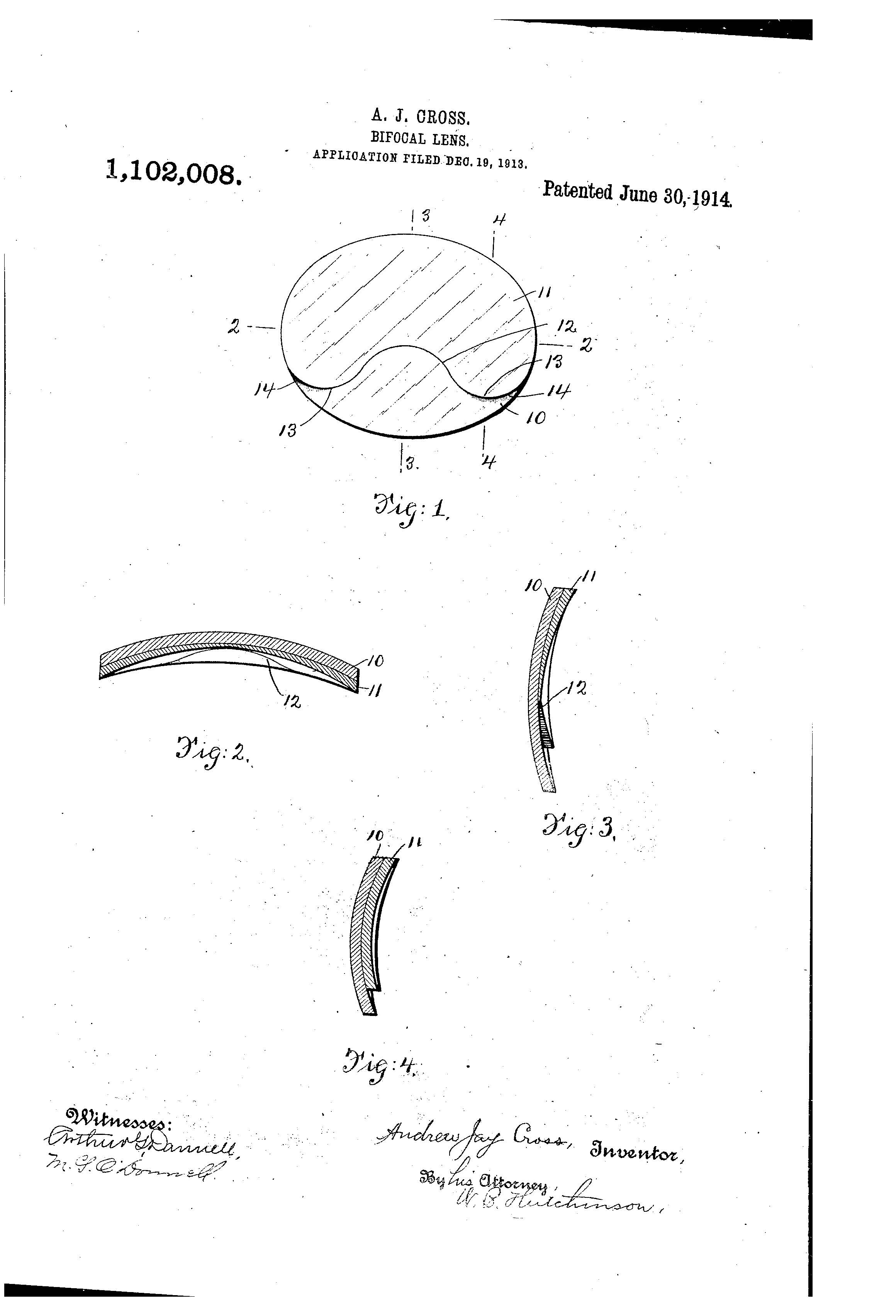Suiter Swantz IP takes a look back at past inventions and inventors with our Patent of the Day.
On this day in 1914, Andrew Jay Cross, was granted U.S. Patent No. 1,102,008 for a BIFOCAL LENS.
An excerpt from the patent states:
The invention relates to improvements in bifocal lenses, and the general object of the invention is to produce a bifocal lens for glasses and spectacles which is of simple construction, graceful appearance, and in which the close vision or reading member of the lens has a much greater area than usual in bifocal lenses, this being accomplished in a way which does not appreciably reduce the distance area of the lens.
Heretofore the general practice in the construction of bifocal lenses has been to cement or fasten to the distance glass a positive segment which provides the close vision or reading member of the lens. This positive or close vision segment has been constructed in a single curve, for the reason that mechanical difficulties of grinding are so great as to render it practically impossible to give to the added segment a shape which would result in a compound curve, and give to the lower edge of the glass or close vision segment a substantially wider vision. Where lenses are made, however, as disclosed in Letters Patent of the United States No. 1,063,421, issued to me on the 3rd of June, 1913, it is comparatively easy to give this wider area to the reading or close vision member, and it is also possible to accomplish this result, though not in so perfect a manner, by what is called solid grinding, that is by grinding a single glass so that the major or upper portion shall be adapted for distance vision, and the lower portion for close vision. I have found that by leaving the middle portion of the close vision member substantially as usual, but by widening the exposed portion of said member at its lower edge, very satisfactory results are obtained, and the user of the lens has a much wider range of vision through the close vision member than has heretofore been possible. This makes the glasses in which such lenses are used, far more comfortable and efficient, especially when the lenses are monocentric, as disclosed in my patent above referred to.
Suiter Swantz IP is a full-service intellectual property law firm, based in Omaha, NE, serving all of Nebraska, Iowa and South Dakota. If you have any intellectual property questions or need assistance with any patent, trademark or copyright matters and would like to speak to one of our patent attorneys please feel free to contact us.
